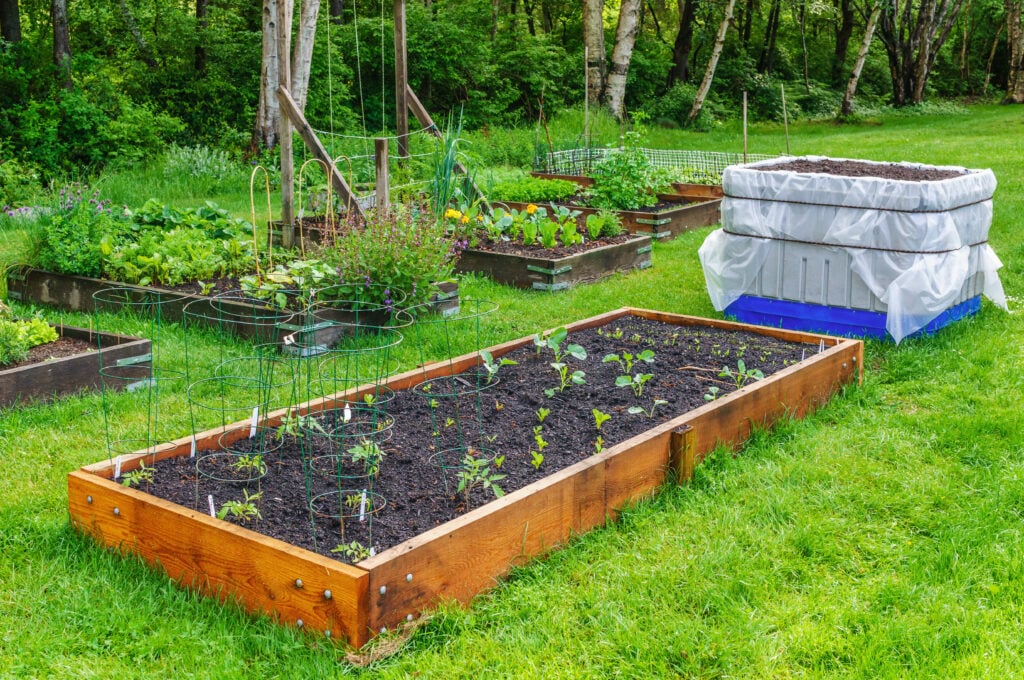For many homestead dreamers, the idea of caring for backyard chickens is both exciting and rewarding. These charming creatures not only provide fresh eggs but also bring life and activity to your homestead. Whether you are just starting or already have a flock, understanding the essentials of chicken care is crucial. In this guide, we will explore the key aspects of keeping your chickens healthy and happy.

Why Choose Chickens for Your Homestead?
Chickens are a popular choice for those who are new to homesteading. They are relatively easy to care for and can be kept in both urban and rural settings. Additionally, chickens contribute to your homestead by providing fresh eggs, natural pest control, and organic fertilizer. If you’re interested in starting your own homestead, check out homesteading at home for more insights.
Choosing the Right Breed
When caring for backyard chickens, selecting the right breed is essential. Different breeds have varying temperaments, egg production rates, and suitability for your climate. For example, if you live in a colder region, consider breeds like the Rhode Island Red or Buff Orpington, which are known for their hardiness.
Consider Climate and Space
Before choosing a breed, assess the climate and space available in your backyard. Some breeds are more adaptable to different climates, while others require specific conditions. Ensure that your chickens have enough space to roam and forage.
Egg Production
Consider your egg production goals when selecting a breed. Some chickens lay more eggs than others, and certain breeds are known for their consistent egg-laying abilities. Research the breeds that best match your needs.
Setting Up a Chicken Coop
A well-designed chicken coop is vital for caring for backyard chickens. It provides shelter, safety, and comfort for your flock. When building or buying a coop, keep in mind the following factors:
Size and Ventilation
Ensure your chicken coop is spacious enough to accommodate all your chickens comfortably. Proper ventilation is crucial to prevent moisture buildup and keep the air fresh.
Security from Predators
Protect your chickens from predators by securing the coop with sturdy locks and wire mesh. Predators such as raccoons and hawks can be a threat, so make sure your coop is predator-proof.
Nesting Boxes and Roosts
Provide enough nesting boxes for your hens to lay their eggs comfortably. Roosts are also essential for chickens to perch at night, ensuring a good night’s rest.
Feeding Your Flock
Proper nutrition is key to caring for backyard chickens. A balanced diet ensures healthy hens and high-quality eggs. Here are some feeding tips:
Commercial Feed
Commercial chicken feed is formulated to meet the nutritional needs of your flock. Choose a feed that matches the age and purpose of your chickens, such as starter feed for chicks and layer feed for egg-laying hens.
Supplemental Treats
Incorporate treats like fruits, vegetables, and grains into your chickens’ diet. However, remember that treats should not exceed 10% of their total diet.
Access to Clean Water
Always provide clean, fresh water for your chickens. Hydration is vital for their overall health and egg production.
Maintaining Chicken Health
To ensure the well-being of your flock, regular health checks are essential. Here are some tips for maintaining chicken health:
Regular Health Checks
Inspect your chickens for signs of illness, such as lethargy, unusual behavior, or changes in appearance. Early detection of health issues is crucial for effective treatment.
Parasite Prevention
Keep your chickens free of parasites like mites and lice by regularly cleaning the coop and providing dust baths. Consider using natural remedies to prevent infestations.
Vaccinations
Consult with a veterinarian to determine if vaccinations are necessary for your flock. Vaccinations can protect against common poultry diseases.
Encouraging Natural Behaviors
Chickens are curious creatures that thrive when they can express their natural behaviors. Here are ways to encourage these behaviors:
Free-Range Opportunities
Allow your chickens to roam freely in your backyard to forage for insects and plants. This not only provides enrichment but also contributes to their diet. Learn more about raised bed gardening to enhance your backyard environment.
Enrichment Activities
Provide toys, perches, and climbing structures to keep your chickens engaged and active. Enrichment activities help prevent boredom and promote mental well-being.
Dealing with Common Challenges
Caring for backyard chickens comes with its challenges. Here are some common issues and how to address them:
Egg Laying Problems
Issues like soft-shelled eggs or decreased egg production can be caused by nutritional imbalances or stress. Ensure your chickens have a balanced diet and a stress-free environment.
Feather Pecking
Feather pecking can occur due to overcrowding or boredom. Provide ample space and enrichment activities to prevent this behavior.
Broody Hens
Broody hens may refuse to leave the nest and stop laying eggs. To break this behavior, remove the hen from the nest and provide distractions.
Integrating Chickens into Your Homestead
Chickens can play an integral role in your homestead’s ecosystem. They help with pest control, composting, and soil fertilization. For more ideas on integrating chickens and other elements into your homestead, visit starting a homestead.
Companion Planting
Integrate chickens with gardening by using companion planting techniques. Chickens can help control pests in your garden while benefiting from the plants.
Waste Recycling
Use chicken manure as a valuable fertilizer for your garden. Composting chicken waste can enrich your soil and promote plant growth.
Conclusion
In conclusion, caring for backyard chickens is a rewarding endeavor that enhances your homesteading experience. By providing proper care, nutrition, and enrichment, your flock will thrive and bring joy to your homestead. Remember, every chicken is unique, and understanding their needs is key to success. For more tips on homesteading, explore starting a homestead garden.

FAQs
What do chickens eat?
Chickens primarily eat commercial feed, but you can supplement their diet with fruits, vegetables, and grains.
How often should I clean the chicken coop?
It’s recommended to clean the chicken coop at least once a week to maintain a healthy environment.
Can chickens coexist with other pets?
Yes, chickens can coexist with other pets, but it’s essential to introduce them properly and ensure that the environment is safe for all animals involved.






